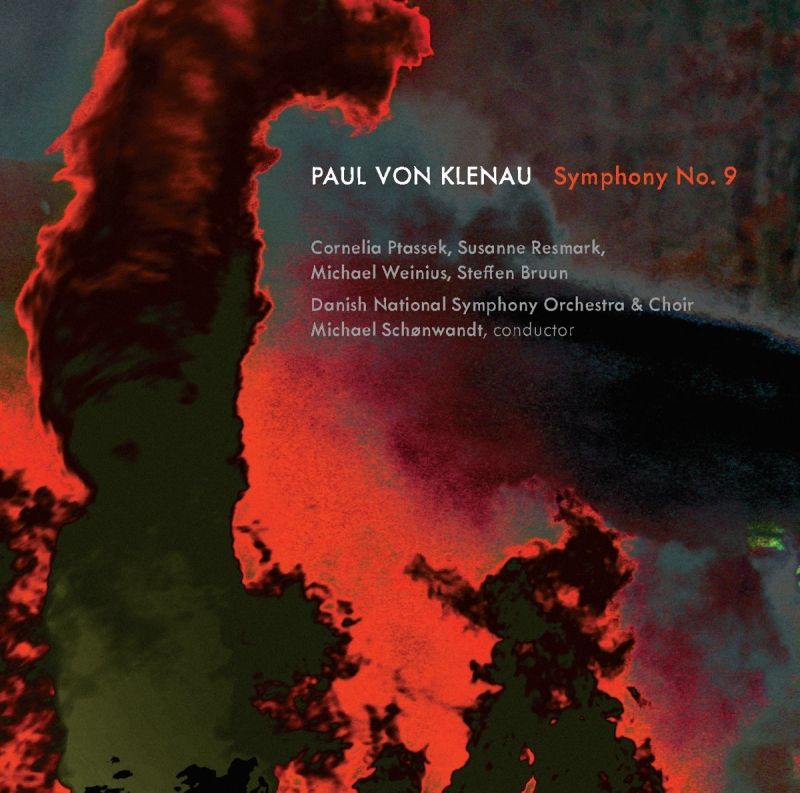VON KLENAU Symphony No 9
View record and artist detailsRecord and Artist Details
Composer or Director: Paul (August) von Klenau
Genre:
Orchestral
Label: Dacapo
Magazine Review Date: 07/2016
Media Format: CD or Download
Media Runtime: 88
Mastering:
DDD
Catalogue Number: 8 226098/9

Tracks:
| Composition | Artist Credit |
|---|---|
| Symphony No 9 |
Paul (August) von Klenau, Composer
Cornelia Ptassek, Soprano Danish National Concert Choir Danish National Symphony Orchestra Michael Schønwandt, Conductor Michael Weinius, Tenor Paul (August) von Klenau, Composer Steffen Bruun, Bass Susanne Resmark, Alto |
Author: Andrew Mellor
In the end Klenau returned to a tonal style; but, as his final symphony shows, tone rows still featured (notably in the third and fourth movements of the eight-movement symphony). The piece was composed in 1945 after Klenau’s return to Copenhagen but discovered in Vienna only as recently as 2001.
It’s an odd beast, combining Latin Requiem texts with ponderous statements by Klenau himself (translated into Latin, naturally). ‘Ponderous’ describes much of the music too. Spend too long in Germany and perhaps one feels obliged to initiate a fugue every 10 minutes; too often, Klenau’s fugue subjects are unwieldy and their treatment is aesthetically anaemic and technically limited. Transitions can be clunky but Klenau sometimes taps character (an example of both is around the 3'50" mark in the third movement). Ultimately, I’m inclined to agree with a Danish critic who cites the work’s total lack of charm. For Klenau that’s altogether fresher, try his cantata Die Weise von Liebe und Tod des Kornetts Christoph Rilke, also on Dacapo (6 220532).
Bravo to these musicians for giving the piece every chance. Excellent playing, good if sometimes tired-sounding choral singing and excellent contributions from the inimitable Susanne Resmark (she has the first vocal entry, perhaps the disc’s highlight) and open-voiced tenor Michael Weinius. Good to have a recording – especially if it means we don’t have to have another performance.
Discover the world's largest classical music catalogue with Presto Music.

Gramophone Digital Club
- Digital Edition
- Digital Archive
- Reviews Database
- Full website access
From £8.75 / month
Subscribe
Gramophone Full Club
- Print Edition
- Digital Edition
- Digital Archive
- Reviews Database
- Full website access
From £11.00 / month
Subscribe
If you are a library, university or other organisation that would be interested in an institutional subscription to Gramophone please click here for further information.




